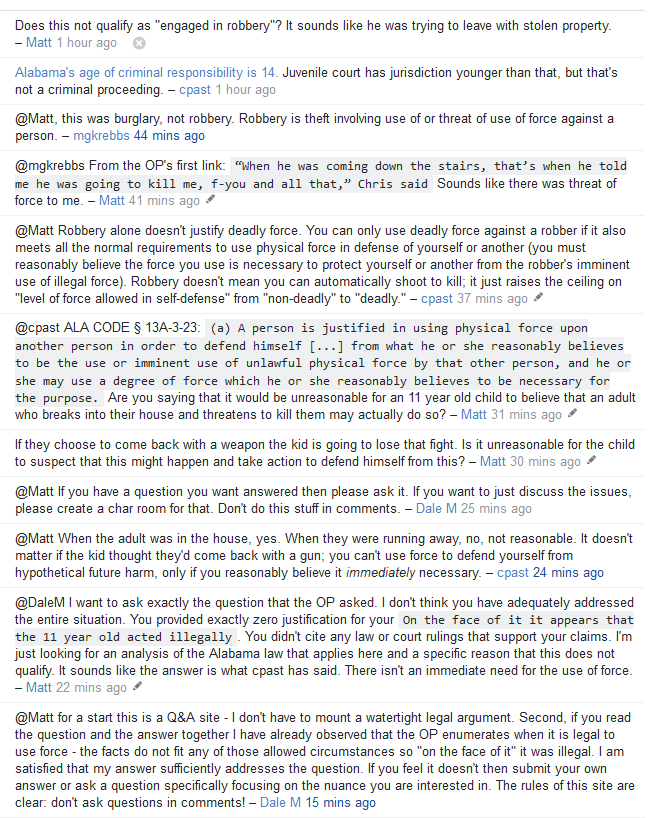I was a bit unconvinced of the correctness of this answer: https://law.stackexchange.com/a/8949/1340
To me it seems like there is no justification provided whatsoever1. I am aware that justification isn't necessary for answers: Do answers need to reference written laws or court cases? However, in this case it is quite easy to find the applicable laws online so it seems to me like it would be necessary to use these to make a convincing argument.
After asking for clarification in the comments a user suggested that if I had a question to create a new question rather than asking in the comments. (Comments provided below in case they are deleted) I don't believe I was trying to ask a new question, just asking for clarification/justification of the answer.
In this case it sounds like the answer is There was not an immediate need for the use of force therefore it was illegal. But am I expecting too much from these answers? Do they not need any justification at all? Or should I have been asking for this justification in another question? If it is the latter, what should the question look like? To me it seems like I would just be asking exactly the same question again with an extra "with justification please" at the end.
1 The OP quoted a news article's summary of the law but to me this isn't very convincing either. I have seen news articles get laws wrong, or at least over simplify them, before. Additionally, in this case, a news article explicitly disagrees with the answer: http://nypost.com/2016/05/01/11-year-old-boy-makes-home-invader-cry-like-a-baby/ The eleven-year old faces no charges, as Alabama law allows for one to use deadly force in the event of unlawful entry or burglary. Which makes me less likely to trust either the news source or an unjustified answer on Stack Exchange.
